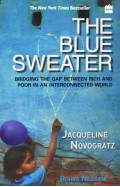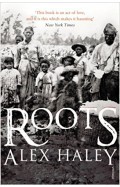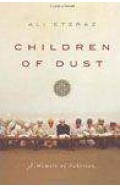- Home
- Sale
- Budget-Friendly Books
- Biography Books Under Rs. 1000
- Mockingbird Songs - My Friendship with Harper Lee
Mockingbird Songs - My Friendship with Harper Lee
By: Wayne Flynt
-
Rs 746.25
- Rs 995.00
- 25%
You save Rs 248.75.
Due to constant currency fluctuation, prices are subject to change with or without notice.
The violent racism of the American South drove Wayne Flynt away from his home in Alabama, but the publication of To Kill a Mockingbird, Harper Lee’s classic novel about courage, community and equality, inspired him to return in the early 1960s and craft a career documenting and teaching Alabama history. His writing resonated with many, in particular three sisters: Louise, Alice and Nelle Harper Lee. The two families first met in 1983, and a mutual respect and affection for the state’s history and literature matured into a deep friendship between them.
Wayne Flynt and Nelle Harper Lee began writing to one other while she was living in New York – heartfelt, insightful and humorous letters in which they swapped stories, information and opinions on topics including their families, books, social values, health concerns and even their fears and accomplishments. Though their earliest missives began formally – ‘Dear Dr Flynt’ – as the years passed, their exchanges became more intimate and emotional, opening with ‘Dear Friend’ and closing with ‘I love you, Nelle.’
This is a remarkable compendium of a correspondence that lasted for a quarter century – until Harper Lee’s death in February 2016 – and it offers an incisive and compelling look into the mind, heart and work of one of the most beloved authors in modern literary history.
The violent racism of the American South drove Wayne Flynt away from his home in Alabama, but the publication of To Kill a Mockingbird, Harper Lee’s classic novel about courage, community and equality, inspired him to return in the early 1960s and craft a career documenting and teaching Alabama history. His writing resonated with many, in particular three sisters: Louise, Alice and Nelle Harper Lee. The two families first met in 1983, and a mutual respect and affection for the state’s history and literature matured into a deep friendship between them.
Wayne Flynt and Nelle Harper Lee began writing to one other while she was living in New York – heartfelt, insightful and humorous letters in which they swapped stories, information and opinions on topics including their families, books, social values, health concerns and even their fears and accomplishments. Though their earliest missives began formally – ‘Dear Dr Flynt’ – as the years passed, their exchanges became more intimate and emotional, opening with ‘Dear Friend’ and closing with ‘I love you, Nelle.’
This is a remarkable compendium of a correspondence that lasted for a quarter century – until Harper Lee’s death in February 2016 – and it offers an incisive and compelling look into the mind, heart and work of one of the most beloved authors in modern literary history.
Mockingbird Songs - My Friendship with Harper Lee
By: Wayne Flynt
Rs 746.25 Rs 995.00 Ex Tax :Rs 746.25
Zubin Mehta: A Musical Journey (An Authorized Biography)
By: VOID - Bakhtiar K. Dadabhoy
Rs 630.00 Rs 1,050.00 Ex Tax :Rs 630.00
Fierce Leadership: A Bold Alternative To The Worst Best Practices Of Business Today
By: susan Scott
Rs 1,210.50 Rs 1,345.00 Ex Tax :Rs 1,210.50
Girls at War (6 Chelsea Walk) - Paperback
By: Ann Turnbull
Rs 1,121.25 Rs 1,495.00 Ex Tax :Rs 1,121.25
The Blue Sweater : Bridging The Gap Between Rich And Poor In An Interconnected World
By: Jacqueline Novogratz
Rs 297.50 Rs 595.00 Ex Tax :Rs 297.50
Manning Up: How the Rise of Women Has Turned Men into Boys
By: Kay Hymowitz
Rs 895.50 Rs 995.00 Ex Tax :Rs 895.50
Fierce Leadership: A Bold Alternative To The Worst Best Practices Of Business Today
By: susan Scott
Rs 1,210.50 Rs 1,345.00 Ex Tax :Rs 1,210.50
Girls at War (6 Chelsea Walk) - Paperback
By: Ann Turnbull
Rs 1,121.25 Rs 1,495.00 Ex Tax :Rs 1,121.25
The Blue Sweater : Bridging The Gap Between Rich And Poor In An Interconnected World
By: Jacqueline Novogratz
Rs 297.50 Rs 595.00 Ex Tax :Rs 297.50
No recently viewed books available at the moment.
Zubin Mehta: A Musical Journey (An Authorized Biography)
By: VOID - Bakhtiar K. Dadabhoy
Rs 630.00 Rs 1,050.00 Ex Tax :Rs 630.00
Mockingbird Songs - My Friendship with Harper Lee
By: Wayne Flynt
Rs 746.25 Rs 995.00 Ex Tax :Rs 746.25
Fierce Leadership: A Bold Alternative To The Worst Best Practices Of Business Today
By: susan Scott
Rs 1,210.50 Rs 1,345.00 Ex Tax :Rs 1,210.50
Girls at War (6 Chelsea Walk) - Paperback
By: Ann Turnbull
Rs 1,121.25 Rs 1,495.00 Ex Tax :Rs 1,121.25
The Blue Sweater : Bridging The Gap Between Rich And Poor In An Interconnected World
By: Jacqueline Novogratz
Rs 297.50 Rs 595.00 Ex Tax :Rs 297.50










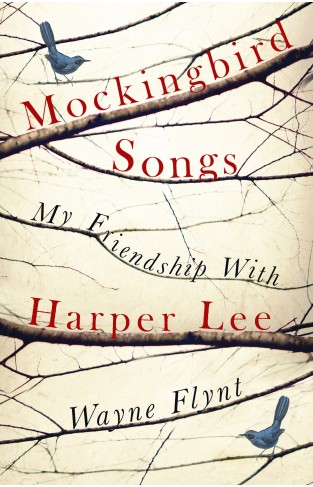
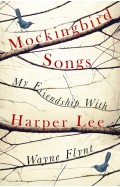
-120x187.jpg?q6)






-Paperback-120x187.jpg?q6)
